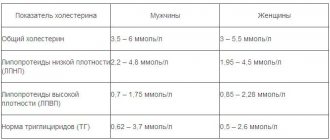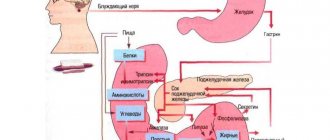Heartburn is a subjective syndrome of unpleasant burning sensations in the upper digestive tract, such as the stomach and esophagus. It occurs in cases where there is a dysfunction of motility or closure of the valve apparatus between the stomach and esophagus.
Under these conditions, acidic contents backflow into the esophagus, which is a detrimental factor for its mucosa. Burning in the stomach and heartburn are the same phenomena.
Belching is the release of food particles mixed with gastric juice into the upper parts of the esophagus, up to the return to the oral cavity.
These two states usually exist together. Appear in various diseases of the gastrointestinal tract, such as: gastritis, ulcerative defects of the mucous membrane, gastroesophageal reflux, Malory Weiss syndrome, oncological processes, damage to the liver and pancreas.
Even a banal snack or consumption of low-quality products can trigger an attack of heartburn.
General characteristics of the pathology
Belching is usually a harmless and completely natural occurrence. The only problem in this case is that it can arise at the most inopportune moment. But if belching has an unpleasant smell or taste, and is repeated regularly, this indicates the presence of pathologies of the digestive system. When air trapped in the digestive tract escapes after eating, a taste of the food eaten may appear in the mouth. Sour belching also occurs if the acidity of the digestive juice in the stomach is increased or the motility of the gastrointestinal tract is impaired.
Hydrochloric acid, which is the main component of gastric juice, plays a vital role in the process of digesting food. It has disinfecting properties and breaks down eaten foods into smaller components. But sometimes too much hydrochloric acid is produced. This may be due to impaired secretory function of the digestive tract, poor diet, infection or inflammatory diseases.
With increased stomach acidity, various unpleasant consequences occur, for example, heartburn or nausea, as well as frequent belching, which becomes sour.
This condition worries many people, and sour belching greatly overshadows a tasty meal; it can occur at the most inopportune moment and even at night. The appearance of such a symptom does not depend on the gender or age of the person. Even a child can experience belching with a sour taste. Moreover, in infants this is not a sign of pathology. After eating, they often vomit, sometimes even with small amounts of food. But in children after one year, frequent belching should be a reason to visit a doctor, as it indicates a malfunction of the digestive system.
To understand that such a condition is a sign of pathology, you need to pay attention to the accompanying symptoms. Most often, sour belching is accompanied by a burning sensation in the esophagus, heartburn, and pain. Other sensations may also occur:
- nausea, vomiting;
- disruption of intestinal function, expressed in alternating diarrhea and constipation;
- dizziness, headaches;
- weakness, decreased performance;
- insomnia;
- obstructive jaundice.
Risk group
At risk are children whose bodies are still developing, as well as expectant mothers who are forced to face all the hardships of pregnancy.
Burning and bloating in children
If a child complains of burning pain and abdominal distension, then active physical games should be excluded immediately after eating. The functioning of the gastrointestinal tract should be normalized even after giving up fried and fatty foods. It is recommended to introduce more fermented milk products (except milk), vegetables and fruits.
It is important to study the child’s individual reaction to certain foods in order to exclude the factor of food allergy. When the body rejects certain components, belching is also present in children and adolescents.
Possible causes of heartburn in infants
In newborns, unpleasant symptoms often develop due to individual intolerance to mixtures or improper introduction of previously unfamiliar products. Possible diseases associated with unpleasant conditions include: cystic fibrosis, scoliosis, ENT diseases, helminthic infestations. Persistent heartburn and flatulence, even after following all the recommendations, should be accompanied by a visit to your doctor.
Discomfort in pregnant women
The occurrence of toxicosis disrupts the proper functioning of the gastrointestinal tract, and the appearance of stress on the stomach from an enlarged child only increases the discomfort. Due to physiological transformations, a burning sensation occurs: the esophageal sphincter temporarily loses its locking function. However, after childbirth, the hormonal balance is restored and the discomfort goes away.
What diseases accompany this symptom?
If acid belching occurs regularly, this is a sign of digestive dysfunction. Moreover, it can appear not only after eating, but also during the day. After all, this condition is usually associated with an increased level of acidity in the stomach. This happens with hyperacid gastritis, peptic ulcer, GERD. These diseases are also accompanied by many other symptoms; belching is rarely their only manifestation.
In addition to increasing the acidity of the stomach, gastritis with low acidity can cause reflux of its contents into the esophagus. With this pathology, digestion slows down, food fermentation occurs, as a result of which air can accumulate in the stomach. It comes out when belching, often with food particles. This condition can also be caused by inflammation of the pancreas. Acute and chronic pancreatitis leads to a lack of enzymes for digesting food. As a result, it stays longer in the stomach and upper intestines, so it can flow back into the esophagus along with air.
Another fairly common cause of sour belching is gastroesophageal reflux disease - GERD. Its main manifestations are heartburn, burning in the esophagus, and belching with a sour taste. This happens due to a violation of the motor function of the stomach when the lower esophageal sphincter does not work properly. Acid belching can also occur with chronic cholecystitis, hepatitis, enterocolitis, the presence of a hiatal hernia, pyloric stenosis, cysts or tumors in the digestive tract.
Traditional methods
To alleviate the patient’s condition, relieve him of increased gas formation in the intestines and a burning sensation in the chest, you need to use one of the following methods.
- Camomile tea. This plant can be found in any pharmacy; you can also use chamomile, dried at home. Two spoons of the plant are poured with boiling water. It is necessary to infuse the chamomile for 15 minutes, and then strain the infusion. You need to drink this medicine in small sips throughout the day. It is recommended to drink at least two glasses of chamomile infusion per day.
- Flax seeds. Flax is poured with boiling water. It is necessary to infuse it for about half an hour. For 1 glass of water there is 1 spoon of flax seeds. A glass of infusion is drunk on an empty stomach every day. It is recommended to be treated with this infusion for 2 weeks.
- Infusion of fennel, anise and dill. You need to mix all three herbs in equal quantities and pour hot water over them. Let them infuse for 30 minutes, after which the infusion is strained and filtered. You need to take a teaspoon of this medicine several times a day. It is recommended to be treated with this infusion for a week.
- Potato juice. This is one of the most effective remedies for heartburn, belching and flatulence. If these symptoms occur, the potatoes should be juiced. He drinks on an empty stomach. To improve the taste of this drink, you can add a little honey to it.
- Oatmeal You need to chop washed and dried oats. A spoonful of oats is poured into a glass of boiling water. Waiting time – 30 minutes. Then the drink is filtered using gauze. You need to drink this infusion before meals for a week.
Connection with nutrition
Most often, sour belching appears after eating. This condition almost constantly accompanies those who eat poorly, drink little fluid, and abuse alcoholic beverages. First of all, sour belching occurs when overeating. An overfilled stomach leads to slower digestion and disruption of the lower esophageal sphincter. It does not close completely and regurgitation of food occurs.
When overeating, belching often occurs, sometimes with a taste of the food eaten
If, after a heavy meal, you still take a horizontal position, engage in physical work, or squeeze your stomach with clothes, then belching with sour contents is guaranteed. This condition often occurs when air enters the stomach. It enters with food when a person eats very quickly, and also if he talks while eating.
The habit of drinking liquid with food also leads to slower digestion. In addition, some foods stimulate the production of hydrochloric acid in large quantities. When they are consumed, the gastric mucosa becomes irritated, causing belching and heartburn. In healthy people, this happens occasionally; after eating regular food, they feel good. But people with gastrointestinal diseases need to know what causes sour belching most often:
- carbonated drinks;
- alcohol;
- coffee;
- onions, garlic, hot seasonings;
- smoked meats;
- marinades, pickles;
- strong coffee;
- sweets;
- fresh dough.
In addition, such belching can occur when eating very acidic foods. Most often it is sauerkraut, sour juices, citrus fruits. An unpleasant taste appears due to the entry of eaten food back into the esophagus.
What to do at home
Constant belching and heartburn require immediate medical attention. If this condition occurs once as a result of overeating, drinking carbonated drinks or spicy, fried foods, then at home you can relieve such unpleasant symptoms with alkaline mineral water or regular baking soda diluted in warm boiled water.
Other reasons
The appearance of sour belching is not always associated with poor nutrition or the presence of pathologies of the gastrointestinal tract. From time to time it can appear in healthy people who try to adhere to a proper diet. This condition can be caused by the following reasons:
What causes heartburn
- alcohol abuse;
- smoking;
- use of certain medications, such as antibiotics, hormones, or NSAIDs;
- severe stress;
- decreased immunity;
- obesity;
- wearing clothes that compress the stomach;
- bending or other physical activity after eating;
- eating immediately before bed.
Belching with a sour taste often occurs during pregnancy. This is not a pathology, although it causes serious discomfort to the woman. The cause of such belching may be changes in hormonal levels or decreased immunity. But most often it is caused by disruption of the stomach due to compression by the enlarged uterus. This problem can be avoided only if you carefully monitor your diet, avoiding heavy foods or overeating.
How are such disorders treated?
For minor intestinal dysfunctions, patients often use folk remedies and advice from healers. It is popular to drink soda solution, potato juice or chamomile decoction after meals, as well as dill water and baked pumpkin. In case of severe problems, take heartburn medications (Rennie, Gastal, Gaviscon, Inalan). Regardless of the reason for the appearance of internal distension and simultaneous burning in the stomach, doctors always prescribe nutritional correction.
There are many reasons for heartburn, but as the number of attacks increases, treatment for the discomfort should be started as quickly as possible. Timely elimination of the initiating factor helps prevent the transition of heartburn and accompanying bloating to the chronic stage, which increases the risk of developing stomach cancer.
Features of treatment
Before starting treatment for this pathology, you need to understand why such belching occurs. If this condition occurs occasionally, after eating heavy food, sour vegetables or carbonated drinks, you just need to give up such food. But when burping occurs frequently, simply changing your diet will not help prevent it. In this case, you need to contact a gastroenterologist who will conduct an examination and prescribe treatment.
If belching with a sour taste occurs frequently, self-medication is unacceptable; you must be examined by a doctor.
It is not advisable to get rid of sour belching or heartburn with medications on your own. After all, this condition is only a symptom; without treatment of the underlying disease, the pathology will progress. The constant presence of acid in the esophagus will lead to irritation of its mucous membrane, the appearance of ulcers and erosions. In this case, gastritis, peptic ulcer, and GERD develop. Gradually, indigestion will be accompanied by other symptoms. Intestinal upset, flatulence, and abdominal pain may occur.
To avoid complications, it is necessary to start treatment on time. In addition to medications prescribed by a doctor, a special diet is very important. It is necessarily part of the complex treatment of any diseases of the digestive system. It is recommended to change not only your diet, but also your diet. It is better to eat often, in small portions. It is undesirable to overeat, drink carbonated and alcoholic drinks, fatty and spicy foods.
It is necessary to reduce the amount of salt, sweets, pastries, spices, and sour vegetables in the diet. If sour belching occurs frequently, it is recommended to eat foods that create an alkaline environment in the stomach more often. These are oats, brown rice, whole grain bread, green vegetables.
Drug therapy
To get rid of sour belching, it is necessary to eliminate the causes of its occurrence. But there are also special drugs that are aimed at reducing acidity and normalizing motility of the digestive tract. Drug treatment must be prescribed by a doctor individually, taking into account the cause of the pathology and the presence of concomitant diseases.
Usually, for frequent belching with a sour taste, several groups of drugs are used. They have a complex effect on the digestive organs, preventing disruption of their functioning.
- First of all, drugs from the group of antacids are prescribed that neutralize the effect of hydrochloric acid. They not only reduce acidity, but also protect the mucous membrane from irritation. These are Almagel, Rennie, Gastal, Phosphalugel and others. They are taken during an exacerbation to relieve discomfort.
- In the complex treatment of gastritis and ulcers, drugs that reduce the production of hydrochloric acid are often used. Their intake should be long-term, then they reduce the acidity of the stomach and prevent the occurrence of belching and heartburn. These are Famotidine, Omeprazole, Pantoprazole and their analogues.
- To speed up the digestion of food, enzymes are prescribed. They promote faster movement of the food bolus into the lower intestines and normalize the functioning of the pancreas. The most commonly used are Pancreatin, Mezim, Festal.
- If you have nausea and frequent belching, you need medications that normalize gastric motility. This could be Domperidone, Motilium or Cerucal.
Traditional methods
Sometimes sour belching occurs in a person at the most inopportune moment. It is important to know what to do in this case in order to quickly alleviate your condition. Usually, it is not recommended to use traditional recipes in case of serious disruption of the gastrointestinal tract without consulting a doctor. But there are quite harmless ways to get rid of sour burps. For example, you can eat a carrot, an apple, a handful of nuts or a cabbage leaf.
If belching is accompanied by heartburn, it is recommended to drink a glass of water with a spoonful of baking soda dissolved in it. Sometimes it is recommended to replace water with milk. Olive oil also helps relieve such symptoms - you just need to swallow a couple of spoons of this product.
Sometimes a glass of water with soda helps get rid of belching, but you should not use this method often. Caution: sometimes traditional methods can lead to a worsening of the condition, for example, soda disrupts the acid-base balance in the stomach and leads to irritation of the mucous membrane, and oil can cause diarrhea.
There are also traditional methods that help treat gastritis and other diseases of the digestive system. Usually, such patients are recommended to drink herbal decoctions instead of tea. These can be mint leaves, linden flowers, fennel, St. John's wort, chamomile, raspberry and currant branches.
In case of exacerbation, you need to take oatmeal jelly. It is better to prepare it from whole oats, but you can use flakes. A mixture of aloe leaves in red wine and honey is useful for improving stomach function. Regular drinking of freshly squeezed juices of potatoes, carrots and cabbage helps relieve heartburn and prevent frequent sour belching.
Dyskenesia of the gallbladder
Violation of the motor functions of the biliary tract leads to stagnation of bile and its reflux back into the gastric and esophageal lumen from the intestines, which provokes the appearance of heartburn with bitter belching. Causes of the disorder:
- formation of stones in the gallbladder;
- organ inflammation;
- bladder resection;
- cancer;
- hepatitis, cirrhosis and other liver damage.
Bile reflux develops against the background of:
- weakening of the pylorus - the locking valve separating the small intestine and the gastric lumen;
- peptic ulcer;
- cystic resection.
In addition to heartburn with belching, the disease is accompanied by:
- pain on the right, upper abdomen;
- nausea with bilious vomiting;
- weight loss up to anorexia.
Diagnostics
Before starting treatment, it is necessary to establish why the condition has worsened. Examination of the digestive organs will help determine pathology. The doctor may order an endoscopy. The procedure allows you to visualize mucous membranes and identify superficial damage.
To determine the level of leukocytes and red blood cells, a general blood test is prescribed. You will need to submit your stool for microscopic examination.
Your doctor may recommend doing a CT scan of your abdomen. The procedure is informative and painless.
Additionally, an ultrasound examination of organs may be prescribed to identify pathologies. After research, the gastroenterologist will prescribe treatment.
Prevention
In order to avoid problems with sour belching, you need to follow several recommendations:
- give up bad habits for life;
- follow the rules of proper nutrition;
- take medications only as prescribed by a doctor and strictly adhere to the dosage;
- promptly eliminate diseases that can lead to the appearance of such a symptom;
- Walk after eating.
However, the main preventive measure is regular examination by doctors, at least once a year.
General recommendations and diet
The main condition for a speedy recovery is a review of nutrition and lifestyle. Important Recommendations:
- Exclusion of spicy, sour, fatty, fried, over-salted, gas-forming foods. You should not make dishes from legumes, eggs, cabbage, fatty dairy products, or black bread.
- Avoid chewing gum.
- Reducing the menu of soda, coffee, and strong tea.
- Fractional meals in small portions.
- Chewing food ingredients thoroughly.
- Dinner - 3 hours before bedtime.
- Quitting smoking and alcohol.
- Refusal of intense physical activity, carrying heavy objects, and resting in a horizontal position after eating. It's better to take a slow walk.











